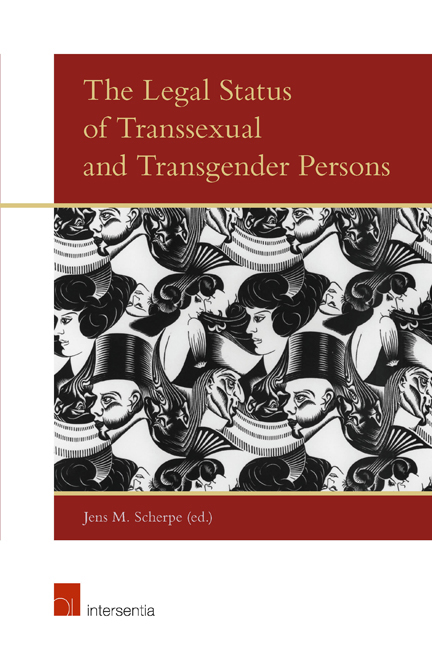Book contents
Hong Kong Special Administrative Region
from Asia
Published online by Cambridge University Press: 28 November 2017
Summary
LEGAL FRAMEWORK AND STATISTICS
The legal system of the Hong Kong Special Administrative Region (Hong Kong SAR) is comprised of two main parts. First, the pre-1997 colonial era which consisted of a mixture of customary law, the English common law, equity, and local statutes. Second, after 1 July 1997 (the People's Republic of China resuming sovereignty over the Hong Kong SAR), the Basic Law is the Constitution of the Hong Kong SAR. The Basic Law preserves the law previously enforced (i.e. the common law, rules of equity, ordinances, subordinate legislation and customary law).
LEGAL RULES AND HISTORICAL DEVELOPMENT
Hong Kong ordinances use the term ‘sex’, ‘male’, ‘female’, ‘man’, ‘woman’ and ‘gender’, but they are not defined. Like many other jurisdictions, a person is assigned to either ‘male’ or ‘female’ at birth, and this is then recorded on the person's birth certificate.
The first judicial decision on the meaning of the words ‘male’ or ‘female’, ‘man’ or ‘woman’ was the recent landmark judgment in W v Registrar of Marriages. In this case, the Court of Final Appeal recognised a post-operative male-to-female transsexual person's right to marry.
W v Registrar of Marriages involved Ms W, who was stated in the judgment to be a ‘post-operative male-to-female transsexual person’. Ms W sought judicial review to quash the Registrar of Marriages’ refusal to allow her to marry her male partner. Her argument was premised on the ground that the Registrar misinterpreted the meaning of the words ‘woman’ and ‘female’ in section 40(2) of the Marriage Ordinance (MO) (Cap. 181) and section 20(1)(d) of the Matrimonial Causes Ordinance (MCO) (Cap. 179) respectively. She sought a declaration that the Registrar had wrongly regarded her as male for the purposes of these provisions. She also sought a declaration that such an interpretation was inconsistent with Article 37 of the Basic Law and/or Articles 14 and 19(2) of the Hong Kong Bill of Rights (the equivalent of Arts. 17 and 23(2) of the International Covenant on Civil and Political Rights (ICCPR)).
The High Court (Andrew Cheung J) dismissed both of Ms W's claims. It held that the meaning of ‘man’ and ‘woman’ was a matter of statutory interpretation.
- Type
- Chapter
- Information
- The Legal Status of Transsexual and Transgender Persons , pp. 335 - 362Publisher: IntersentiaPrint publication year: 2015

